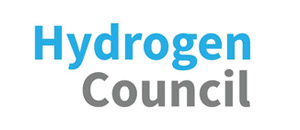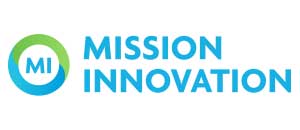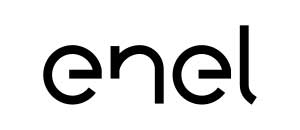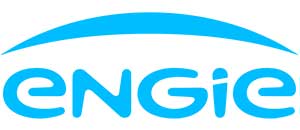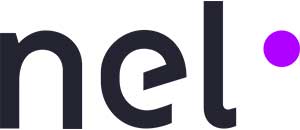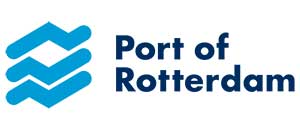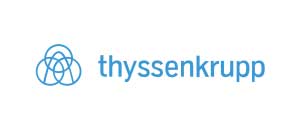Hydrogen

Goal
Drive international collaboration on policies, programmes, and projects to accelerate the commercial deployment of hydrogen fuels and technologies across all sectors of the economy.
Overview

The Hydrogen Initiative aims to advance policies, programmes and projects that accelerate the commercialization and deployment of hydrogen fuels and technologies across all aspects of the economy. Building on recommendations from the Hydrogen energy Ministerial meeting in 2018 in Japan, and in partnership with other coalitions like the International Partnership for Hydrogen and Fuel Cells in the Economy (IPHE) and Mission Innovation, the initiative focuses on how hydrogen can contribute to cleaner energy systems, while promoting sustainability, resilience and energy security.
Initial work focuses on three key areas:
- Helping to ensure successful deployment of hydrogen within current industrial applications.
- Enabling deployment of hydrogen technologies in transport (e.g. freight, mass transit, light-rail, marine).
- Exploring the role of hydrogen in meeting the energy needs of communities.
Activities
- ASPIRATIONAL GOALS
- GLOBAL PORTS HYDROGEN COALITION
- ROUNDTABLE ON THE NORTH-WEST EUROPEAN REGION
- INTERNATIONAL HYDROGEN TRADE FORUM
- H2 TWIN CITIES INITIATIVE
ASPIRATIONAL GOALS
Goal
This activity aims to track all existing country goals/targets and other approaches to integrate hydrogen in long-term plans. The outputs of this work are intended to inform the development of new activities and campaigns of the CEM Hydrogen Initiative to align with government objectives and help them achieve those goals.
Participants
The European Commission leads this work with the support of the IEA. All CEM Hydrogen Initiative members participate in this activity
Additional Information
The first consultation of the Aspirational Targets working group was completed and the results were used in the IEA’s Global Hydrogen Review 2021.
In May 2022, the Hydrogen Initiative released a summary of Global Hydrogen Targets. This report summarizes interviews with around 70 national governments on their hydrogen-specific goals, complemented with additional research from the IEA.
GLOBAL PORTS HYDROGEN COALITION
Goal
The Coalition will enhance policy dialogue and project-oriented collaboration related to scaling up the production and use of low-carbon hydrogen and hydrogen-based fuels in industrial coastal areas. It will build upon already existing dialogues about the potential for adopting hydrogen in ports operation, including, but not limited to, those at the International Association of Ports and Harbours (IAPH), the World Ports Climate Action Program (WPCAP) and the Hydrogen Council.
Participants
This work is led by the European Commission.
As of 16 December 2022, the following ports and partners have joined the Global Ports Hydrogen Coalition:
- Abu Dhabi Ports
- Ballard Power Systems
- Brunsbüttel Ports
- Côtes-d’Armor Chamber of Commerce (Ports of Le Légué, St Quay Portrieux, Erquy)
- Department of Port & Customs Ajman
- Dock Sud Port
- DP World UAE Region
- Duisburg Port
- Ennshafen Port
- European Sea Ports Organisation (ESPO)
- Haropa Ports (Le Havre, Rouen, Paris)
- International Association of Ports and Harbors (IAPH)
- Free Hanseatic City of Bremen
- Fremantle Ports
- Hydrogen Council
- Neltume Ports
- New Energy Coalition
- North Queensland Bulk Ports
- Pecém Port Complex
- Port of Amsterdam
- Port of Antwerp
- Port Authority of Valencia
- Port of Bahia Blanca
- Port of Bécancour
- Port of Berlevåg
- Port of Bordeaux
- Port of Brisbane
- Port of Duqm
- Port of Farsund
- Ports of Finistere
- Port of Grenland
- Port of Gothenburg
- Port of Hamburg
- Port of Halifax
- Port Houston
- Port of Kobe
- Port of Mejillones
- Port of Montreal
- Port of Rotterdam Authority
- Port of Saguenay
- Port of Trieste
- Port of Trois-Rivières
- Port of Ulsan
- Port of Vienna
- Ports Australia
- Portuguese Ports Association
- Puerto Brisa
- Red Sea Gateway Terminal
- Sharjah Ports
- Southern Ports
- Vancouver Fraser Port Authority
- Woodside Energy
Additional Information
The Global Ports Hydrogen Coalition held its first meeting to discuss priorities in October 2021. Watch the event here
The CEM Global Ports Hydrogen Coalition handed over a ‘Call to Action’ to CEM H2I members at the Global Clean Energy Action Forum (GCEAF) in Pittsburgh, US, on 22 September 2022.
CEM12: Launch of Global Hydrogen Ports Coalition
How to Join?
If you want to get involved in the Global Ports Hydrogen Coalition, please contact hydrogen@iea.org .
ROUNDTABLE ON THE NORTH-WEST EUROPEAN REGION
Goal
Develop a new regional hydrogen market in North-West Europe through convening government representatives and key industrial stakeholders in the region to identify opportunities, tackle barriers, and explore policy and regulatory requirements to develop the region.
Participants
The Netherlands leads on this work. Germany, Norway and the United Kingdom participate as CEM H2I members. Belgium, Denmark and France participate as non-CEM H2I members.
Additional Information
In April 2021, IEA released the ‘’Hydrogen in North-Western Europe’’ technology report available here.
This was followed by a two-day roundtable 3-4 May 2021 and the main findings of that are available here.
INTERNATIONAL HYDROGEN TRADE FORUM
Goal
The Hydrogen Trade Forum focuses on accelerating international hydrogen trade and investment across the hydrogen value chain and responds to growing efforts to expand international collaboration in potential importing and exporting governments.
Background
Development of the hydrogen sector for energy applications is receiving significant attention on a global scale. This is not without reason, the deployment of low-emission hydrogen has the potential to support the decarbonization of nearly 140 countries that have pledged to achieve net-zero emissions within the coming decades (Net Zero Tracker, 2022). As a cross-cutting energy vector, hydrogen can also contribute to decarbonizing local communities industry, transport and power generation and in transporting large volumes of energy across seas. Therefore the need for international trade of hydrogen arises. Hydrogen trade will be crucial for net importers to reach net-zero targets, and for net exporters to maximise benefits from clean energy deployment.
A diverse and dynamic international hydrogen market can help to reduce risks associated with hydrogen supply chains and foster a just energy transition. For accelerating an international hydrogen trade, demand visibility, production incentives, certification, storage, transportation and regulatory frameworks need to be aligned among countries. Net importers can help net exporters to access technology, training, capacity building and affordable accessible finance as well as to set up local value chains in job-creating green industries for a net-zero industrial development.
The members of the Hydrogen Trade Working Group of CEM’s Hydrogen Initiative (CEM-H2I), hereinafter the Working Group, have since 2020 been sharing experience with each other related to the topic of international hydrogen supply chains. The work and shared information have been fed into IEA’s analysis, including the 2022 IEA Global Hydrogen Review which presents an overview on the various existing trade models under consideration by participating governments of the Working Group. As well, there are other international organisations, think-tanks and industry initiatives that have been looking into the different aspects needed to allow hydrogen trade. To further establish and strengthen the multilateral collaboration on hydrogen trade, the Working Group has been recently upgraded to the ‘International Hydrogen Trade Forum’ (hereinafter ‘the Forum’) where a broader group of countries (CEM and non-CEM members) can engage in a multilateral discussion. The current participant governments are Australia, Brazil, Canada, Chile, Germany, Japan, Saudi Arabia, South Korea, The Netherlands, United Arab Emirates, United Kingdom, United States, Uruguay and the European Commission. The Forum operates under the framework of CEM-H2I. The official launch of the Forum took place on 22nd of July in Goa, India during the 14th Clean Energy Minsiterial meeting[1].
[1] Launch of the International Hydrogen Trade Forum to Accelerate Global Collaboration | Clean Energy Ministerial
Participants
Co-Chairs 2023: the Netherlands and the United Arab Emirates
Current participating governments are Australia, Brazil, Canada, Chile, Germany, Japan, Saudi Arabia, South Korea, The Netherlands, United Arab Emirates, United Kingdom, United States, Uruguay and the European Commission. The IEA Hydrogen TCP and the IPHE also participate in as CEM H2I partners.
Coordinator
The International Hydrogen Trade Forum is coordinated by UNIDO.
H2 TWIN CITIES INITIATIVE
Goal
Accelerate hydrogen deployment and user acceptance by incentivizing the pairing of communities around the world to collaborate, share ideas, and learn from each other.
The H2I Twin Cities Initiative brings together cities and regions to increase awareness, promote best practices, and share information on the use of hydrogen and fuel cell technologies at scale. To help facilitate this, participating governments facilitate two types of city pairings: Mentor-Mentee and Sibling cities.
- Mentor- Mentee H2 Twin Cities: These partnerships are designed to assist cities in starting their hydrogen journey. Mentor cities agree to stare strategies and best practices for accelerating progress in hydrogen and fuel cells with mentee cities.
- Sibling H2 Twin Cities: Sibling cities agree to collaborate and exchange knowledge and resources on areas of mutual interest including the co-benefits of clean hydrogen with other city priorities, like workforce development or equitable access.
The 2023 pairings will encourage participation from emerging economies and focus on mentor-mentee partnerships. The 2023 call for nominations will occur in Q1 of 2023.
2022 Winners
Mentor-Mentee: the H2–TRANS–PACIFIC Team. The U.S. city of Lancaster, CA and Namie Town, Japan who will serve as mentors to Hawai’i County, Hawaii.
As mentors, Lancaster and Namie Town have pledged to share best practices with mentee region, Hawai’i County. Their activities will support carbon neutral by 2035 goals and address mutual priorities to develop a skilled workforce.
Sibling Cities: the Hydrogen Is Here! Team, formed by Aberdeen, United Kingdom and Kobe, Japan.
These cities have committed to exchange knowledge and resources to better understand how clean hydrogen can benefit their transportation, ports, heat production and electricity sectors equitably. Aberdeen and Kobe have also agreed to facilitate joint research between universities and students in both cities to support mutual workforce development priorities.
The 2022 H2I Twin Cities Initiative winners were announced at COP27. Read the press release here and learn more here.
Participants
The U.S. lead on this work. Canada, the European Commission, Germany, Japan, Korea, the Netherlands, Saudi Arabia, and the United Kingdom also participate as CEM H2I members. The EU Clean Hydrogen Joint Undertaking and the IPHE also participate as CEM H21 partners.
Additional Information
Website: https://www.energy.gov/eere/h2twincities/h2-twin-cities
Video:
How to Join?
Interested in becoming a twin city but not sure where to start?
Click here

